
Mystical Ogbunike Caves: A Journey Through Time
Nestled in the lush greenery of Anambra State, Nigeria, the Ogbunike Caves are a natural wonder steeped in history and culture. These ancient caves have been a sacred site for the local people for centuries, offering a glimpse into the spiritual and historical fabric of the region. Visitors can marvel at the intricate passages and chambers carved out by nature over thousands of years. The caves are not just a geological marvel; they are also a cultural treasure trove. According to local folklore, the caves were discovered by a hunter named Ukwa, and they have since been a place of worship and reflection. The annual 'Ime Ogba' festival held here is a testament to the deep cultural significance of the caves. As you explore, you may come across shrines and ancient relics that tell stories of the past. The journey to the caves is an adventure in itself. A long, winding staircase of over 300 steps leads you down into the cool, dark embrace of the caves. Inside, the temperature drops, offering a refreshing break from the tropical heat. Be prepared to crawl through narrow tunnels and wade through streams as you navigate the labyrinthine corridors. The experience is both thrilling and humbling, making it a must-visit for any adventurer or history enthusiast.
Local tips in Ogbunike Caves
- Wear comfortable walking shoes for the long staircase and uneven cave floors.
- Bring a flashlight or headlamp to navigate the darker sections of the caves.
- Visit during the dry season (November to March) for easier access and better visibility.
- Respect local customs and traditions; the caves are considered sacred.
- Hire a local guide to enhance your experience with historical and cultural insights.
Mystical Ogbunike Caves: A Journey Through Time
Nestled in the lush greenery of Anambra State, Nigeria, the Ogbunike Caves are a natural wonder steeped in history and culture. These ancient caves have been a sacred site for the local people for centuries, offering a glimpse into the spiritual and historical fabric of the region. Visitors can marvel at the intricate passages and chambers carved out by nature over thousands of years. The caves are not just a geological marvel; they are also a cultural treasure trove. According to local folklore, the caves were discovered by a hunter named Ukwa, and they have since been a place of worship and reflection. The annual 'Ime Ogba' festival held here is a testament to the deep cultural significance of the caves. As you explore, you may come across shrines and ancient relics that tell stories of the past. The journey to the caves is an adventure in itself. A long, winding staircase of over 300 steps leads you down into the cool, dark embrace of the caves. Inside, the temperature drops, offering a refreshing break from the tropical heat. Be prepared to crawl through narrow tunnels and wade through streams as you navigate the labyrinthine corridors. The experience is both thrilling and humbling, making it a must-visit for any adventurer or history enthusiast.
When is the best time to go to Ogbunike Caves?
Unmissable attractions to see
Igbo-Ukwu Museum
Explore the rich heritage of the Igbo people at the Igbo-Ukwu Museum, a cultural gem in Anambra, Nigeria, showcasing ancient artifacts and traditions.
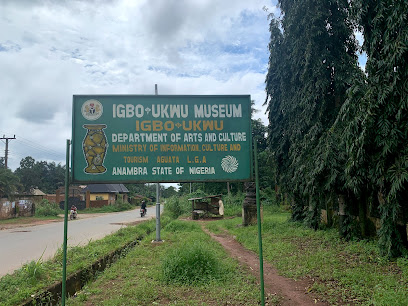
Nelson Mandela Gardens and Resort
Explore the lush greenery and serene ambiance of Nelson Mandela Gardens and Resort in Asaba, Delta – a perfect escape for nature lovers and relaxation seekers.
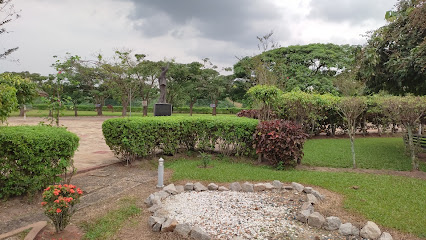
Zik's Mausoleum
Discover the rich history of Nigeria at Zik's Mausoleum, honoring the legacy of the nation's first President, Nnamdi Azikiwe.
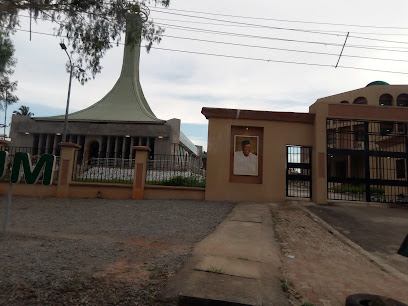
Onitsha South Park
Explore Onitsha South Park, a vibrant green space in the heart of Onitsha, ideal for relaxation, recreation, and cultural experiences.

Nnobi Park
Explore the natural beauty and tranquility of Nnobi Park in Anambra – a perfect getaway for relaxation and cultural immersion.
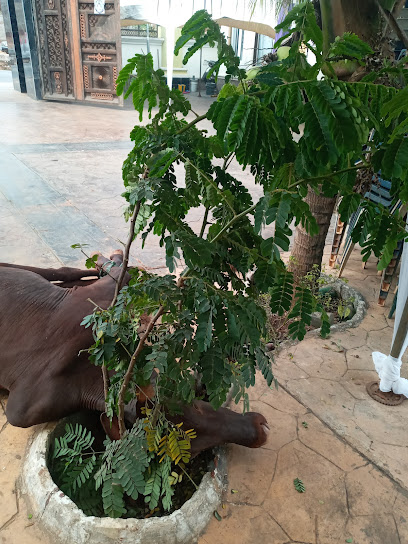
Awka Wonderland
Discover Awka Wonderland, an amusement park offering thrilling rides, animal encounters, and family-friendly fun in Awka, Anambra.
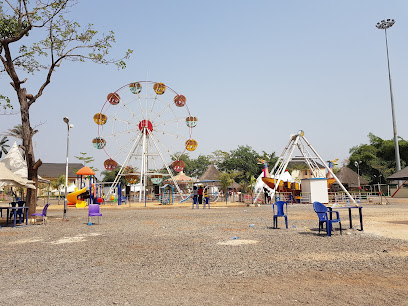
City Park
Explore City Park in Onitsha, a tranquil green space perfect for relaxation, picnics, and enjoying the beauty of nature amidst urban life.

Maryam Babangida Leisure Park
Experience the tranquility and beauty of Maryam Babangida Leisure Park in Asaba, a perfect retreat for relaxation and recreation in nature.
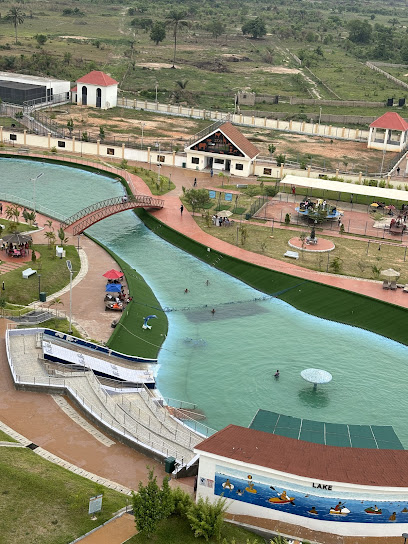
Vinmilan Amusement Park, Asaba
Experience the thrill of adventure and family fun at Vinmilan Amusement Park, Asaba's premier amusement destination.

TRACAS PARK
Experience the lush greenery and tranquility of TRACAS PARK in Onitsha, an ideal escape for families and nature lovers alike.
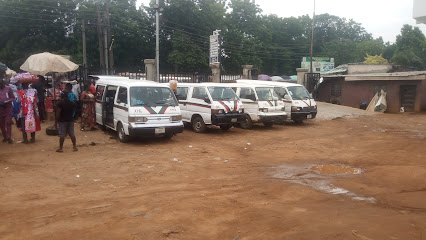
Eke Oyinbo Park, Amawbia
Discover the serene beauty and vibrant local culture at Eke Oyinbo Park in Amawbia, a perfect blend of nature and community spirit.
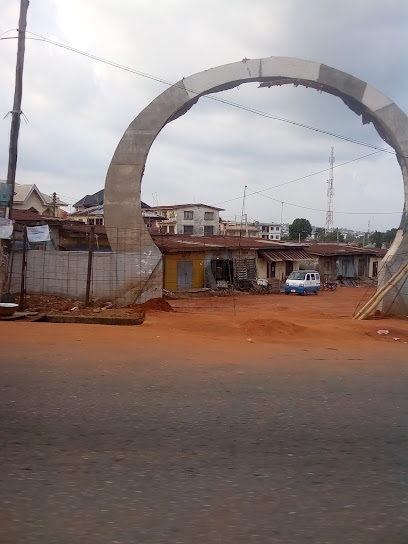
Umuoji Area
Explore the tranquil beauty of Umuoji Area Park in Anambra, Nigeria, where nature meets community in a serene setting.
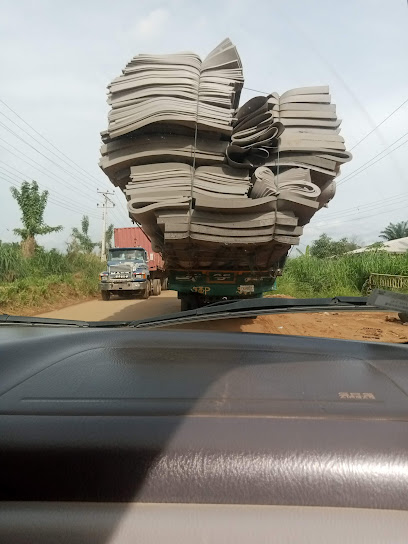
Aguleri central park
Discover the tranquil beauty of Aguleri Central Park in Anambra, a serene retreat for nature lovers and families seeking relaxation and outdoor fun.

Odinani Museum Nri
Discover the heart of Igbo culture at the Odinani Museum Nri, where tradition and history come to life in Anambra, Nigeria.
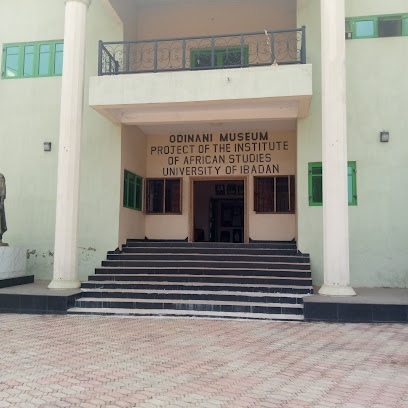
Miriam Babangida Leisure Park
Experience nature's beauty and vibrant culture at Miriam Babangida Leisure Park, a serene oasis in Asaba, Nigeria, perfect for relaxation and recreation.
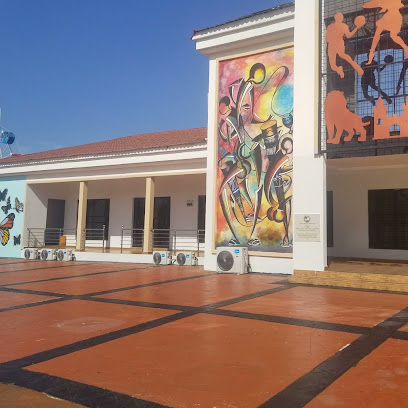
Essential places to dine
Ogbe Hill Restaurant
Experience authentic Nigerian cuisine amidst breathtaking views at Ogbe Hill Restaurant in Anambra.

Nwunyeogbuefis joint
Discover authentic Nigerian cuisine at Nwunyeogbuefis Joint in Abagana – where every dish tells a story.

EnuguEzike Oba (J5) Special palm wine/pork meat
Experience authentic Nigerian cuisine at EnuguEzike Oba with special palm wine and succulent pork meat in Onitsha.

Stone caves bistros
Savor delicious fast food at Stone Caves Bistros in Onitsha, where local flavors meet global favorites in a vibrant atmosphere.

Uniquelolosy
Discover the enchanting flavors at Uniquelolosy, Nanka's charming sugar shack where local traditions meet sweet indulgence.

Holy Mango Cool Joint
Experience authentic Nigerian grilling at Holy Mango Cool Joint in Ozubulu - where every bite tells a story.
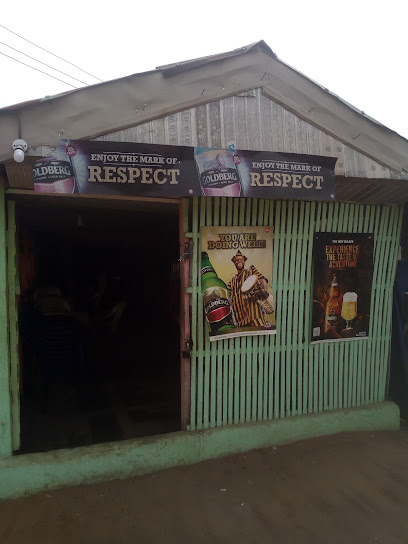
Nwaanyiji Precious Restaurant
Experience authentic Nigerian flavors at Nwaanyiji Precious Restaurant in Onitsha, where every dish tells a story of tradition and taste.
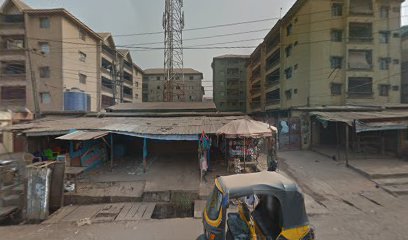
Markets, malls and hidden boutiques
Ogbunike Cave
Discover the breathtaking Ogbunike Cave in Anambra, Nigeria – a natural wonder rich in history and stunning rock formations.
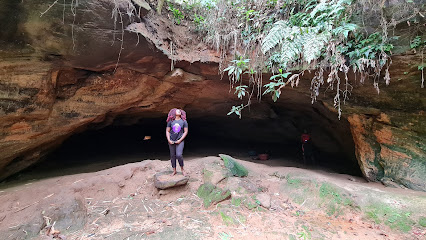
UC PLAZA NKWELLE EZUNAKA
Experience the essence of convenience at UC Plaza, your go-to store in Nkwelle Ezunaka, offering local goods and essentials at great prices.
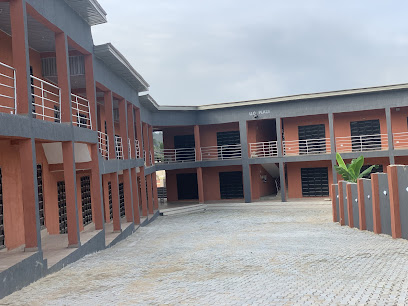
Mgbeji Stores
Explore local culture and flavors at Mgbeji Stores, the vibrant supermarket in Nkpor, Anambra, where unique products await your discovery.

LADY P SHOP
Explore Lady P Shop in Nkpor for unique local crafts, delicious snacks, and a memorable shopping experience that connects you with Nigerian culture.

Slay with oma
Explore Slay with Oma in Onitsha for chic clothing and unique local fashion pieces, a must-visit for every style-savvy traveler.

Jay Jay & Co
Discover the best bicycles and expert repairs at Jay Jay & Co in Ogbunike – your one-stop shop for all cycling needs in Anambra.
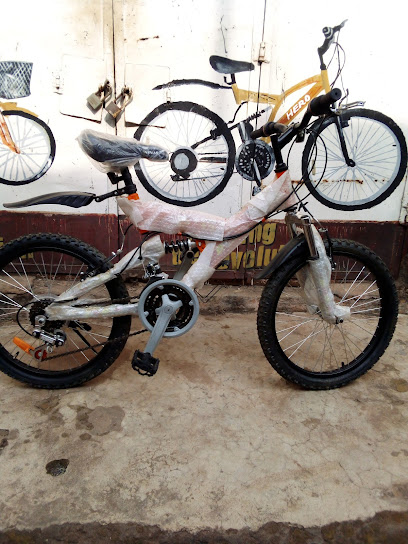
Ewaloge Signature Studio
Discover beauty and creativity at Ewaloge Signature Studio, Ogidi's premier destination for health and wellness services.

Amazing Grace Concept Beverages/ Pos
Experience vibrant shopping and delightful beverages at Amazing Grace Concept Beverages, the heart of Ogbunike's local culture.

EJIKEME CHIKODILI BLESSING
Discover the essence of Nkpor at EJIKEME CHIKODILI BLESSING, your go-to general store for local products and authentic experiences.
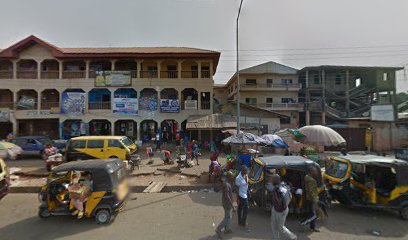
Ever Green Super Home Tech Limited
Explore a vast selection of quality doors at Ever Green Super Home Tech Limited in Ogidi's International Building Material Market.
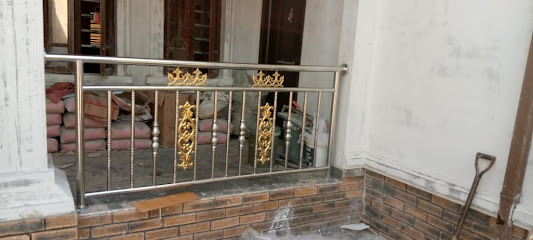
Ifeandu Chukwuebuka
Discover unique local goods and immerse yourself in Nkpor's vibrant culture at Ifeandu Chukwuebuka, a charming general store in Anambra.

Sauki Provision Store
Explore the vibrant local culture at Sauki Provision Store in Nnewi, where traditional goods meet friendly service.

Lucius fragrance
Discover the enchanting world of fragrances at Lucius Fragrance in Onitsha, where every scent tells a story.

Adaobi Hope
Explore Adaobi Hope, a delightful general store in Nkwelle Ezunaka, where local culture meets unique shopping experiences.

OKORO CHIBUIKE
Discover the local charm and everyday essentials at OKORO CHIBUIKE General Store in Nkpor, Anambra – a perfect stop for every traveler!

Essential bars & hidden hideouts
Mama's Bar
Experience the vibrant local culture at Mama's Bar in Nkpor, where relaxation meets lively entertainment in a welcoming atmosphere.
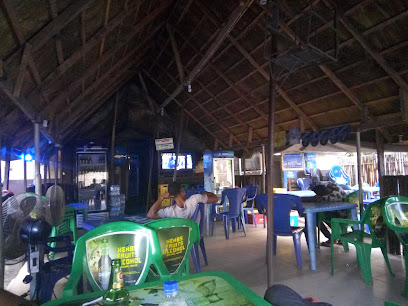
Remmys Grills & Bar
Discover the lively atmosphere and mouth-watering grilled dishes at Remmys Grills & Bar, a top spot in Nkpor, Anambra for food lovers and socializers.
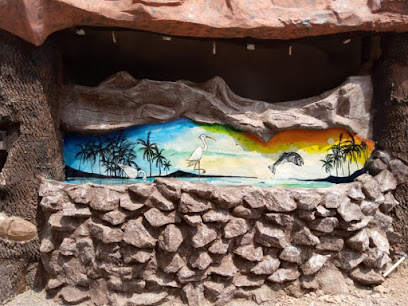
Euro Bars & Lounge
Experience the vibrant nightlife at Euro Bars & Lounge in Akpaka Forest, where refreshing drinks and a lively atmosphere await.
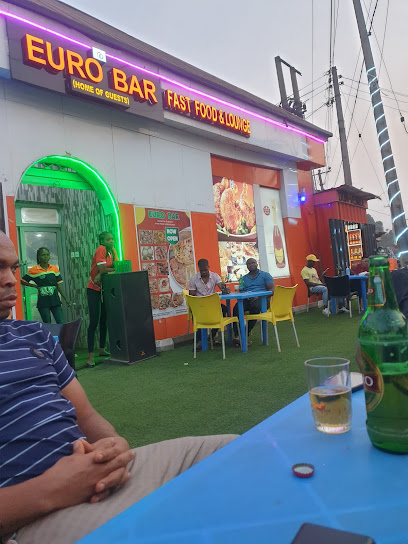
Mrs Uche Bar
Discover the vibrant nightlife at Mrs Uche Bar in Nkpor, Anambra, where chilled drinks and local entertainment await you.
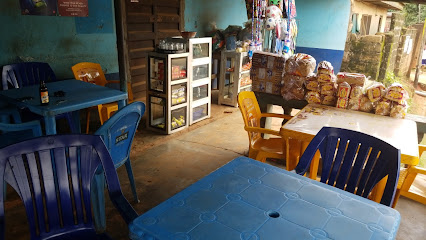
Gadiga Wine Shop
Experience the delightful ambiance and exquisite wine selection at Gadiga Wine Shop, the perfect spot for relaxation and socialization in Nkwelle Ezunaka.
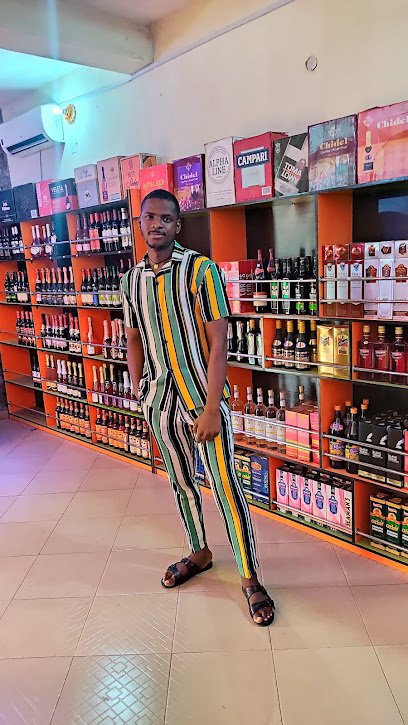
Panacia Bar S.Lounge
Discover the lively atmosphere and diverse drink selection at Panacia Bar S.Lounge in Nkpor, Anambra for an unforgettable night out.
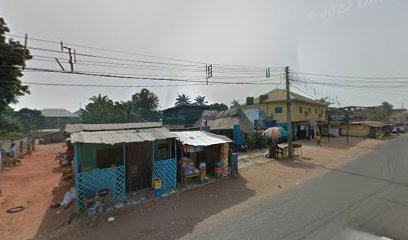
PALM COURT
Discover the culinary treasures of Palm Court in Ogidi, where every grilled dish tells a story of flavor and tradition.
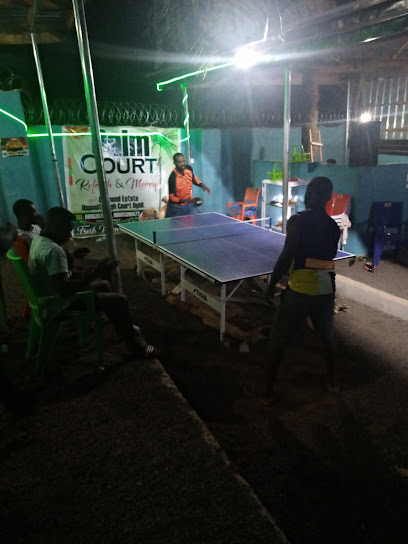
Ada Evidence bar and restaurant
Discover the lively atmosphere and delicious cuisine at Ada Evidence Bar and Restaurant in Nkwelle, Anambra – a must-visit for nightlife enthusiasts.

Panacia Bar
Discover the vibrant nightlife at Panacia Bar in Nkpor, where local drinks and a lively atmosphere await you.

Gondola Bar and Restaurant
Discover the vibrant atmosphere and exquisite flavors at Gondola Bar and Restaurant in Onitsha, a perfect blend of local and international cuisine.

GREAT M PALACE
GREAT M PALACE: Your gateway to unforgettable nights filled with fun, drinks, and live local music in the heart of Nkwelle Ezunaka, Anambra.
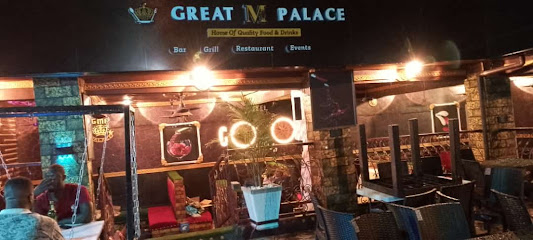
Akunne bar and relaxation place
Experience the perfect blend of relaxation and local culture at Akunne Bar, Obosi's premier spot for unwinding with friends and enjoying a drink.
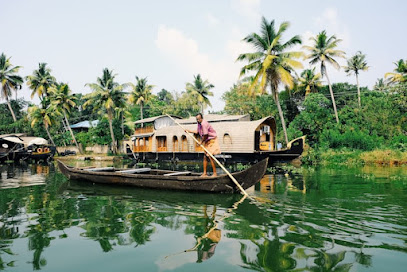
Coffea Joint and Bar
Experience the vibrant flavors of grilled delicacies at Coffea Joint and Bar in Nkpor, a perfect blend of culinary delight and lively atmosphere.

Authentic Bar
Discover the vibrant nightlife at Authentic Bar in Nkpor, where local culture and great drinks come together for an unforgettable experience.

Local Phrases about Ogbunike Caves
-
- HelloNdewo
[N-deh-woh] - GoodbyeKaa
[Kaah] - YesEe
[Eh] - NoMba
[M-bah] - Please/You're welcomeBiko
[Bee-koh] - Thank youDaalu
[Dah-loo] - Excuse me/SorryKachifo
[Kah-chee-foh] - How are you?Kedu ka i mere?
[Kay-doo kah ee meh-reh?] - Fine. And you?Olee. O di mma?
[Oh-leh. Oh dee mah?] - Do you speak English?O gbasara Igbo?
[Oh g-bah-sah-rah Ee-boh?] - I don't understandA di m n'obu ihe mepụta
[Ah dee mm noh-boo ee-heh meh-poo-tah]
- HelloNdewo
-
- I'd like to see the menu, pleaseA gaghị ebe mmepụta, biko
[Ah gah-ghee eh-beh mmeh-poo-tah, bee-koh] - I don't eat meatA naghi eme anụ
[Ah nah-gee eh-meh ah-noo] - Cheers!Ndeewo!
[N-deh-woh!] - I would like to pay, pleaseA ga enye m owo, biko
[Ah gah eh-nyeh m oh-woh, bee-koh]
- I'd like to see the menu, pleaseA gaghị ebe mmepụta, biko
-
- Help!Echefula!
[Eh-cheh-foo-lah!] - Go away!Gaa wụtara!
[Gah wah-tah-rah!] - Call the Police!Tinye aka agha!
[Tee-nyeh ah-kah ah-ghah!] - Call a doctor!Tinye aka ọdọdị!
[Tee-nyeh ah-kah oh-doh-dee!] - I'm lostA dịghị m ihe
[Ah dee-ghee mm ee-heh] - I'm illA dịghị m ọrịa
[Ah dee-ghee mm oh-ree-ah]
- Help!Echefula!
-
- I'd like to buy...A ga ede mmadụ...
[Ah gah eh-deh mmah-doo...] - I'm just lookingA dịghị m ike
[Ah dee-ghee mm ee-keh] - How much is it?Ozi gị n'akwụkwọ bụ ihe?
[Oh-zee gee nah-kuh-kwoh boo ee-heh?] - That's too expensiveN'ihu nke a bụ mma mma
[N-ee-hoo nkeh ah boo mmah mmah] - Can you lower the price?O nwere ike iwe ihe?
[Oh nweh-reh ee-keh ee-weh ee-heh?]
- I'd like to buy...A ga ede mmadụ...
-
- What time is it?Kedụ ebe oge bụ nke?
[Kay-doo eh-beh oh-geh boo nkeh?] - It's one o'clockOge bụ otu
[Oh-geh boo oh-too] - Half past (10)Nkata nke (iri)
[N-kah-tah nkeh (ee-ree)] - MorningUtutu
[Oo-too-too] - AfternoonEhihie
[Eh-hee-heh] - EveningMgbachi
[Mm-bah-chee] - YesterdayN'ụbọchị
[N-oo-boh-chee] - TodayTaa
[Tah] - TomorrowN'apụrụ
[N-ah-poo-roo] - 1Otu
[Oh-too] - 2Abụọ
[Ah-boo-oh] - 3Atọ
[Ah-toh] - 4Anọ
[Ah-noh] - 5Ise
[Ee-seh] - 6Isii
[Ee-see-ee] - 7Asaa
[Ah-sah-ah] - 8Atonye
[Ah-toh-nyeh] - 9Itoolu
[Ee-toh-oh-loo] - 10Iri
[Ee-ree]
- What time is it?Kedụ ebe oge bụ nke?
-
- Where's a/the...?Ebee ka...
[Eh-beh kah...] - What's the address?Kedụ ebe adreesị bụ nke?
[Kay-doo eh-beh ah-dree-see boo nkeh?] - Can you show me (on the map)?O nwere ike kwee m (n'akụkụ)?
[Oh nweh-reh ee-keh kweh mm (nah-koo-koo)?] - When's the next (bus)?Kedụ ebe ndị otu ederede bụ nke?
[Kay-doo eh-beh ndee oh-too eh-deh-reh-deh boo nkeh?] - A ticket (to ....)Egwuregwu (si ....)
[Eh-gwoo-reh-gwoo (see ....)]
- Where's a/the...?Ebee ka...
History of Ogbunike Caves
-
The Ogbunike Caves have been a part of local myth and legend for centuries. According to Igbo mythology, the caves were discovered by a hunter named Ukwa, who stumbled upon them while chasing an animal. The caves are believed to be a sacred site, protected by powerful deities. It is said that the spirits of the ancestors reside within the caves, and they are revered as a place of spiritual significance.
-
For generations, the Ogbunike Caves have served as a venue for traditional ceremonies and rituals. The annual 'Ime Ogbe' festival is one of the significant events held here, where the local community comes together to honor their ancestors and deities. Rituals include offerings, prayers, and traditional dances, all performed to seek blessings and protection from the spirits residing in the caves.
-
During the colonial era, the Ogbunike Caves played a role in the local resistance against British rule. The caves provided a natural hideout for freedom fighters and served as a strategic location for planning and organizing resistance activities. The difficult terrain and labyrinthine structure of the caves made them an ideal refuge for those evading capture by colonial forces.
-
In recent years, archaeological expeditions have uncovered artifacts within the Ogbunike Caves that date back several centuries. These findings include pottery, tools, and remnants of ancient settlements, suggesting that the caves were not only a spiritual site but also a place of habitation. The discoveries have provided valuable insights into the early history and culture of the Igbo people.
-
Recognizing their cultural and historical significance, the Ogbunike Caves were added to the UNESCO World Heritage Tentative List in 2007. This inclusion highlights the importance of preserving the site for future generations and promoting its global recognition. Efforts are ongoing to ensure the protection and conservation of the caves, while also enhancing their accessibility to visitors.
-
Today, the Ogbunike Caves continue to be a site of cultural importance and a popular tourist destination. They attract visitors from around the world who come to explore their natural beauty and learn about their rich history. The caves also serve as an educational resource, providing insights into the traditions, beliefs, and way of life of the Igbo people throughout the centuries.
Ogbunike Caves Essentials
-
Ogbunike Caves are located in Ogbunike, Anambra State, Nigeria. The nearest major airport is Akanu Ibiam International Airport in Enugu, approximately 70 kilometers away. From Enugu, you can take a taxi or a private car hire to Ogbunike, which usually takes about 1.5 to 2 hours. Alternatively, you can travel from Lagos or Abuja by road, but this will take significantly longer, typically around 6 to 8 hours by car.
-
Within Ogbunike, local taxis and motorcycles (okadas) are the most common forms of transportation. For a more comfortable experience, you can hire a private car. Public buses are available but may not be as reliable or comfortable. If you plan to explore neighboring towns and cities, renting a car is a convenient option.
-
The official currency in Nigeria is the Nigerian Naira (NGN). It is advisable to carry cash, as credit cards are not widely accepted, especially in smaller establishments and rural areas. ATMs are available in nearby cities, but it is wise to withdraw enough cash before heading to Ogbunike. Ensure you have some smaller denominations for easier transactions.
-
Ogbunike is generally a safe destination for tourists, but it is important to take standard precautions. Avoid walking alone at night and keep your belongings secure. Some areas in Anambra State have higher crime rates, so it is best to stay vigilant and avoid isolated areas. Always use reputable transportation services and avoid displaying valuable items openly.
-
In case of emergency, dial 112 for immediate assistance. The nearest medical facilities are located in Onitsha, about 30 kilometers away. It is highly recommended to have travel insurance that covers medical emergencies. For minor health issues, there are pharmacies in Ogbunike where you can purchase over-the-counter medications.
-
Fashion: Do dress modestly; avoid wearing revealing clothing. Comfortable walking shoes are advisable for exploring the caves. Religion: Do respect local customs and traditions. When visiting religious sites, dress conservatively and behave respectfully. Public Transport: Do be respectful and patient; don't rush or push in crowded vehicles. Greetings: Do greet people with a handshake; it's customary and polite. Eating & Drinking: Do try local delicacies and accept food offers graciously. Don't refuse hospitality, as it is considered impolite.
-
To experience Ogbunike Caves like a local, consider hiring a local guide who can provide insightful information about the history and cultural significance of the caves. Visit during the annual Ogbunike Cave Festival to witness traditional dances, music, and ceremonies. Engage with the local community; they are often friendly and willing to share stories about their heritage. Don't miss exploring the nearby Ogbunike waterfalls for a refreshing experience.
Nearby Cities to Ogbunike Caves
-
Things To Do in Asaba
-
Things To Do in Owerri
-
Things To Do in Enugu
-
Things To Do in Warri
-
Things To Do in Benin City
-
Things To Do in Port Harcourt
-
Things To Do in Uyo
-
Things To Do in Calabar
-
Things To Do in Mamfe
-
Things To Do in Abuja
-
Things To Do in Malabo
-
Things To Do in Ibadan
-
Things To Do in Buea
-
Things To Do in Limbe
-
Things To Do in Luba




